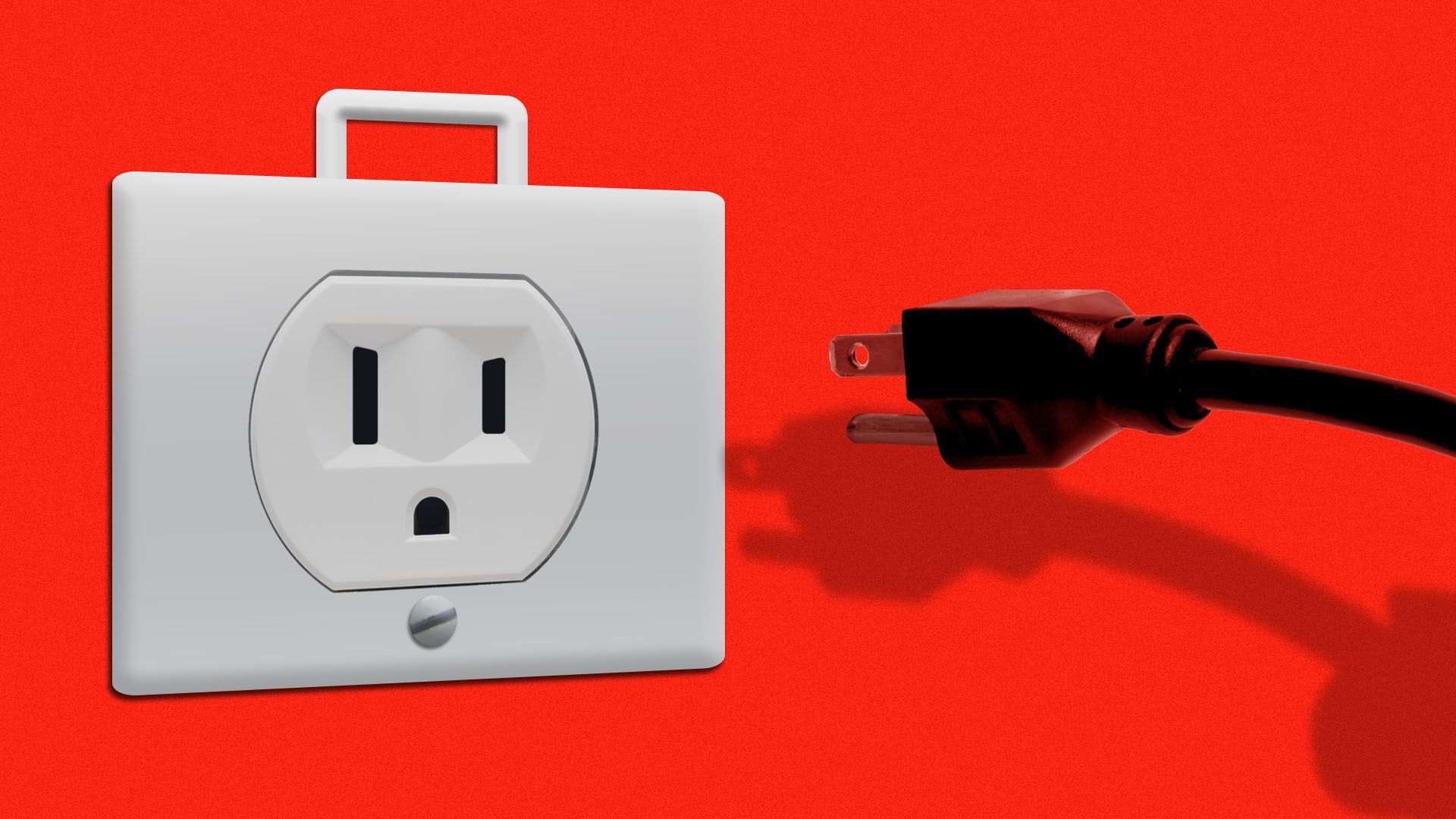The new frontier of corporate clean energy buys
Add Axios as your preferred source to
see more of our stories on Google.

Illustration: Sarah Grillo/Axios
A new analysis finds good news and challenges for a growing movement to better align corporate and government energy procurement with carbon-free power.
The big picture: Princeton researchers sized up the effects of commercial and industrial buyers ensuring their facilities' demand is met around-the-clock with zero-carbon resources.
- That's different — and much harder — than various companies' and local governments' initiatives to procure enough renewable power to match annual demand.
- That's because while matching aggregate usage — often via "renewable energy certificates" — drives renewables deployment, it still means pulling power from grids with fossil fuels.
What they found: 24/7 clean procurement will help create a portfolio of "clean firm" resources that complement intermittent wind and solar — like long-duration storage, geothermal, advanced nuclear and gas with CO2 capture.
It also finds users' 24/7 clean procurement punches above its weight on climate benefits because it "accelerates full-scale transformation of electricity grids."
Catch up fast: The paper comes as a limited but growing number of big energy users are looking to match their consumption of some facilities on an hourly basis with clean power.
- They include Google, which has a target of having all its operations run round-the-clock on carbon-free power by 2030, and Microsoft.
- Google (which funded the research) says it's making progress, and for instance, in May announced a deal with AES to provide Northern Virginia data centers with 90% power from zero-emissions sources on an hourly basis.
Yes, but: There's a "potentially significant cost premium for early leaders, a premium paid to accelerate innovation, maturity, financeability, and widespread availability of clean firm resources."
Go deeper: Canary Media dives deep into the topic.
